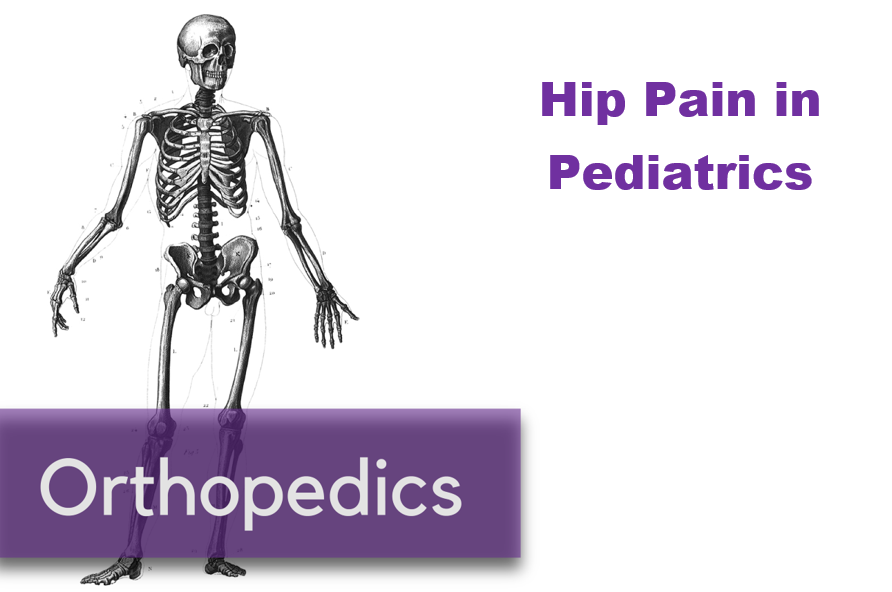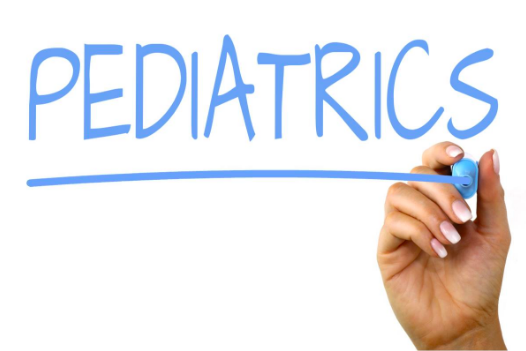Author: Gabby Alzadeh, MD (EM Resident Physician, PGY-2, NUEM) // Edited by: Rachel Haney, MD (EM Resident Physician, PGY-4, NUEM) // Expert Commentary: Suzanne Schmidt, MD
Citation: [Peer-Reviewed, Web Publication] Alzadeh G, Haney R (2016, September 20). Infantile Colic [NUEM Blog. Expert Commentary By Schmidt S]. Retrieved from http://www.nuemblog.com/blog/infantile-colic/
Most infants cry more during the first three months of life than at any other time. As an emergency medicine physician, it’s crucial to rule out other etiologies of fussiness before discharging with pediatrician follow up, but how do we answer parents’ questions about infant colic? Is there anything quick to recommend?
Why is this important?
Infant colic can lead to increased familial stress, and sometimes serious consequences such as shaken baby syndrome, child abuse or neglect. If they are showing up to the emergency department (ED) in the middle of the night, it probably means that the parents are overwhelmed and in desperate need of a helping hand. The most important thing we can do is evaluate for OTHER causes before calling it colic; however, being able to take the time to have a conversation about some basic information on colic, easy and harmless interventions, and setting expectations can help ease parents’ concerns and ensure close follow up with the pediatrician.
So what is infant colic?
- The term is derived from “kolikos”,the Greek word for colon
- Various etiologies have been proposed, with gastrointestinal etiologies being a leading thought
- Classic definitions of colic:
- Wessel criteria: episodes of crying >3 hours/day, >3 days/week, for >3 weeks, healthy and well fed infant
- Rome III criteria: functional GI disorder with paroxysms of irritability, fussiness, crying without any clear cause, lasting >3 hours, >3 days/week, for >1 week, without evidence of failure to thrive
- Generally considered to be:
- Paroxysmal
- Cry is qualitatively different crying than crying for other reasons (i.e. hunger, wet diaper)
- May be associated with hypertonia
- No difference between male/female infants, breastfed or formula fed, preterm/term
- Usually resolves by 3-4 months of age
What causes colic? (Unproven theories)
GI related
- Underfeeding, overfeeding, infrequent burping
- Lactose intolerance can be a cause but is usually associated with vomiting or diarrhea. Lactase treatment does nothing.
- Different microflora. Treatment with Lactobacilli may decrease colic.
Biological
- Immature motor regulation, posited early form of migraines
Psychosocial
- Parental perception of crying -- counseling groups have proven to help including how and when to effectively respond to crying
- Crying as a response to a day filled with environmental stimuli. Colicky crying typically occurs during the evening and may be an infant’s way to decompress. Adults can block out certain noises like a buzzing, the TV or a distant conversation until it is brought to their attention. Some babies are more sensitive to the noises around them and get irritated more easily. These infants cry, swallow a bunch of air, get uncomfortable, and cry more. White noise may be beneficial in these cases.
What do we have to rule out?
T -- trauma (accidental, non-accidental, bites), tumors
I -- infections (otitis, meningitis, UTI, osteo)
M -- maternal stress, family problems
S -- strangulation (hair/fiber tourniquet)
C -- cardiorespiratory disease => look for tachycardia, tachypnea, pallor, poor perfusion
R -- reflux, reactions to formula/meds, rectal (anal fissure) => bloody stool
I -- immunizations, intracranial hemorrhage, intolerance of feeds
E -- eye (foreign bodies, corneal abrasions, retinal hemorrhages)
S -- surgical (volvulus, hernias, testicular torsion, intussusception)
(from Life in the Fast Lane, adapted version of ITCRIES from Herman and Le, 2007)
All these kiddos need a thorough physical examination from head to toe, including GU and skin.
Do we have to rule out corneal abrasions?
A study of 96 infants showed that 49% of infants had abrasions, and mean crying times were not significantly different between those infants with and without corneal abrasions. Not recommended to stain all these crying babies since healing occurs without intervention.
Should parents change formulas or stop breastfeeding?
Changing formulas is really only beneficial in those infants who have a true allergy in which case, the infant should have other symptoms (blood in stool, vomiting, diarrhea). Parents can try switching formulas, and may see a decrease in fussiness or crying within 48 hours. DO NOT tell parents to stop breastfeeding or to switch to low iron formula because this may not meet nutritional needs. Because of the lack of evidence, this should be done by the pediatrician with close follow up.
Do Probiotics help?
This may be promising in breastfed infants but still insufficient evidence, and certainly no evidence to suggest that probiotics prevent colic. Effects are overshadowed by physiologic improvement in colic. Again, best to leave this to the pediatrician.
Will my kid be temperamental and fussy for the rest of their life?
This relates more to parents’ perception of having a “difficult child,” even at this young age, but otherwise colicky kids do not differ on the Toddler Temperament Scale later in life. Issues may arise if colic persists past 5 months of age.
Take home points
- Tell parents that all infants cry, and some infants cry a lot at times in the first 3-4 months. Set expectations.
- Reassure: Go through all the scary things that are unlikely to be causing the crying today (i.e. the above mnemonic)
- Explain to parents that in spite of research, we don’t know exactly what causes colic and as a result there is no quick fix. Suggest harmless and free soothing interventions! Pacifiers, stroller ride, ride in the car, rocking the infant, swings, using white noise (there’s an app for this)
- Formula changes, medications, and probiotics have had mixed reviews and are not a definitive treatment, so best not to recommend.
- Reassure again: It is nothing that the parents are doing wrong or incorrectly, and they are good parents.
- Silver lining: Colic resolves by 3 or 4 months of age and does not mean your child will grow up to be a terrible person.
- The bow on top: Make sure the parents feel supported and have an outlet. Ask how the parents are dealing with all the crying.
Expert Commentary
All babies cry (on average 2 hours per day for non-colicky infants). Some cry a lot. Infant colic is one of those common (up to 40% of infants) and benign, but frustrating conditions (especially to sleep deprived parents at 2am). What we know about it: it usually begins around 3 weeks of age, peaks at 6-7 weeks of age and resolves by 3 months. We often see the families around the 5-7 week point when crying is escalating and parents are wondering if something is wrong with their baby. A colicky infant is not truly inconsolable and often is well appearing in the ED. Infants with colic can be consoled for a time with soothing techniques, but begins crying again when the infant is put down. The parents are often exhausted and worried, and may have trouble coping.
As Gabby outlines above, it is important to take a very careful history, including assessing for risk factors for infection (remember prenatal history, GBS status), and making sure the infant is doing all the other normal baby things (feeding, pooping, peeing, sleeping – though it may not be when the parents want). Perform a thorough exam, evaluating for signs of infection, cardiovascular or respiratory compromise, evidence of an intra-abdominal process, looking at the GU area for hernias/torsion, as well as the skin for signs of inflicted injury.
Though parents often attribute crying to GI issues, there is no good evidence to support formula intolerance or allergy as a cause of most colic, so be wary of ascribing it as such and recommending formula/diet changes without other clear GI symptoms. If parents feel they want to try switching formulas, it is fine as long as it is to another standard infant formula. I would not recommend that the mother stop breast feeding unless it is clear that the infant is not getting adequate nutrition. It is ok to tell parents that in spite of research, we don’t really know what causes (or cures) colic, but we do know it will get better with time.
What you CAN teach parents is soothing techniques, including the “Five Ss” (from Harvey Karp’s “Happiest Baby on the Block”):
- Swaddle – babies like being cozy, show the parent how to swaddle well (but not too tight)
- Side/stomach position - while the parent is holding the child to stop the crying (NOT to sleep – that should always be on the back)
- Shush – the white noise, may be parent’s “shhhh” or a vacuum
- Swing – car ride, gently jiggle/bounce while holding baby (you can recognize mothers of infants as they stand in the Starbuck’s line bouncing in place, even without an infant)
- Suck – nursing - non-nutritive sucking, pacifiers
Mostly, parents want to know that there is nothing wrong with the baby, there are some ways they can soothe the infant, and that this, too, shall pass. Our job is to make sure this is true, that the parents are not using any remedies that may be harmful, that parents have support in place and that the infant is safe.
Suzanne Schmidt, MD
Division of Pediatric Emergency Medicine
Assistant Professor, Northwestern University Feinberg School of Medicine
Other Posts You Might Enjoy
References
- Adams, James G. Emergency Medicine: Clinical Essentials. 2nd ed. Philadelphia: Elsevier 2013.
- Dobson D, Lucassen PLBJ, Miller JJ, Vlieger AM, Prescott P, Lewith G. Manipulative therapies for infantile colic. Cochrane Database of Systematic Reviews 2012, Issue 12. Art. No.: CD00 4796. DOI: 10.1002/14651858.CD004796.pub2.
- Harb T, Matsuyama M et al. Infant Colic - What works: A Systematic Review of Interventions for Breastfed Infant. J Pediatrc Gastroenterol Nutr. 2015 [Epub ahead of print] PMID 26655941.
- Herman M, Le A. The crying infant. Emerg Med Clin North Am. 2007;25(4):1137-59, vii. PMID: 17950139.
- Nicholson C. Baby Tim’s Cries: Infantile Colic and Excessive Crying [Web blog post]. Retrieved February 15, 2016, from http://lifeinthefastlane.com/pediatric-perplexity-009/.
- Savino F, Tarasco V, Sorrenti M, Lingua C, Moja L, Gordon M, Biagioli E. Dietary modifications for infantile colic. Cochrane Database of Systematic Reviews 2014, Issue 3. Art. No.: CD011029. DOI: 10.1002/14651858.CD011029.
- Savino F, Tarasco V, Lingua C, Moja L, Ricceri F. Pain-relieving agents for infant colic. Cochrane Database of Systematic Reviews 2012, Issue 7. Art. No.: CD009999. DOI: 10.1002/14651858.CD009999.
- Sung V, Collett S et al. Probiotics to prevent or treat excessive infant crying: systematic review and meta-analysis. JAMA Pediatr. 2013;167(12):1150-1157.


















